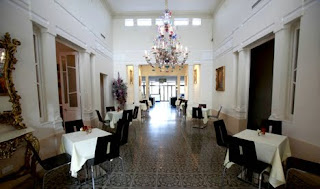Court asks for review of Land Arbitration Board
The case concerned land in Bengħajsa which was expropriated by government in 1969 and passed on to Malta Freeport Corporation in 1989. The Court, presided over by Chief Justice Vincent de Gaetano, Mr Justice Joseph Camilleri and Mr Justice Joseph Filletti turned down the owners’ argument that the land was not expropriated in the public interest because of the Freeport’s privatisation.
However, the Court accepted that the manner in which the Land Arbitration Board is set up does not guarantee independence and impartiality.
The board is chaired by a member of the judiciary, with constitutional guarantees of security of tenure.
However, it also includes 2 technical members - architects - who are directly appointed by government for a maximum period of 2 years. These 2 architects provide the board’s chairman with their opinion on the compensation due for expropriated land. Should they be unanimous in their conclusions, the chairman could not overrule their findings.
Therefore, the Court noted, the technical members were not merely nominated to advice the judiciary – as a previous court had determined over the same case – but had a more powerful role, with the ability to effectively decide on issues of compensation themselves, without the judiciary’s input.
Although the defendants pointed out that a right of appeal existed, the Court noted that this was only limited to legal points, whereas the board’s technical members’ findings were based on factual issues.
Commenting on their appointment, the Court said that they could be appointed for a 2-year period, but that there was no security of tenure. Furthermore, a 2-year period was a very short period itself.
Since there was the possibility of reappointment after the 2-year term is up, the Court said that this could possibly could serve as an incentive for them not to bite the hand that feeds them and undervalue expropriated land.
Therefore, the Constitutional Court ruled, there were no sufficient guarantees that the Land Arbitration Board faced no external pressure by government over cases where the government had a direct financial interest, and that the board could therefore not be described as truly independent.
Article from di-ve.com

Comments
Post a Comment